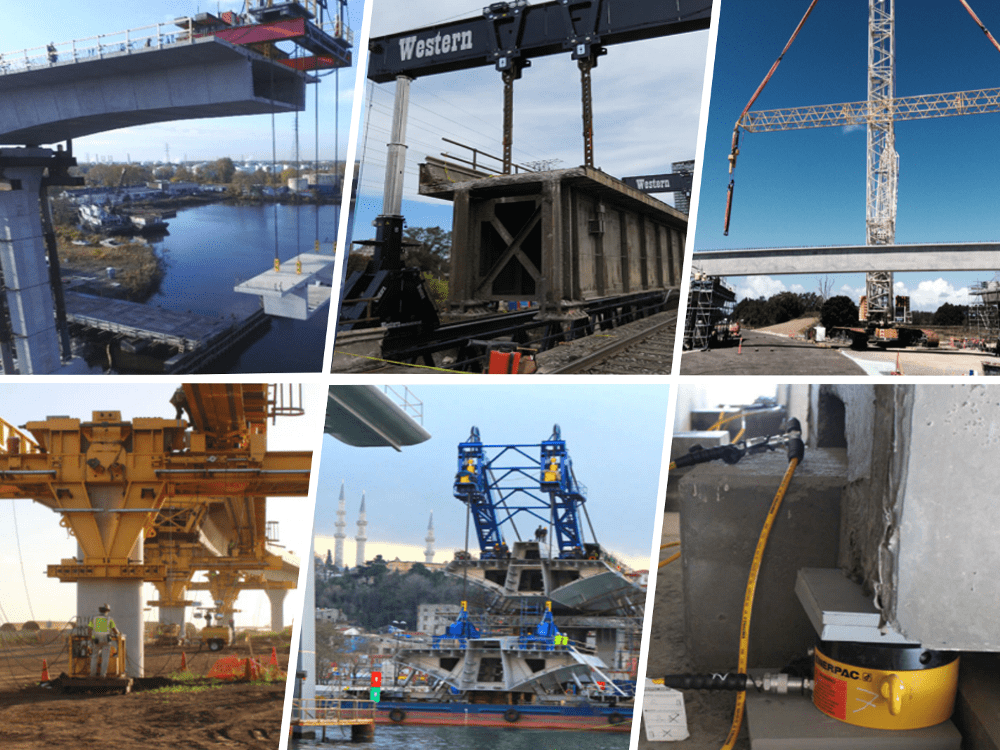Discovering the Financial Benefits of Leasing Building And Construction Tools Compared to Owning It Long-Term
The choice in between owning and renting building and construction tools is essential for financial management in the sector. Renting deals instant cost financial savings and functional flexibility, permitting business to designate sources a lot more efficiently. In contrast, ownership includes substantial long-lasting financial commitments, consisting of upkeep and depreciation. As contractors consider these options, the effect on capital, job timelines, and innovation gain access to ends up being increasingly considerable. Understanding these nuances is necessary, particularly when considering exactly how they align with specific task demands and economic techniques. What aspects should be focused on to make sure optimum decision-making in this complex landscape?

Cost Contrast: Renting Out Vs. Possessing
When assessing the economic effects of possessing versus renting building devices, a comprehensive price contrast is crucial for making educated choices. The choice in between renting and owning can considerably influence a business's lower line, and understanding the connected expenses is crucial.
Leasing construction equipment commonly includes lower ahead of time expenses, allowing organizations to designate funding to various other functional requirements. Rental contracts frequently consist of flexible terms, making it possible for business to access advanced equipment without long-term commitments. This adaptability can be especially useful for short-term projects or varying work. However, rental costs can gather over time, potentially going beyond the expense of ownership if devices is required for an extended period.
On the other hand, having building and construction tools calls for a significant initial investment, together with continuous expenses such as insurance policy, devaluation, and funding. While possession can lead to long-lasting financial savings, it additionally binds funding and might not give the very same degree of adaptability as leasing. Furthermore, having devices requires a commitment to its usage, which may not always straighten with task needs.
Eventually, the decision to own or rent out needs to be based upon a detailed analysis of particular project needs, economic capacity, and long-term strategic objectives.
:max_bytes(150000):strip_icc()/Balance_Must_Have_Earth_Moving_Construction_Heavy_Equipment_844586-c5b6ac9e5c074c11ad41e9acaea8f099.png)
Maintenance Responsibilities and expenses
The selection in between having and leasing building devices not just includes financial considerations but additionally incorporates continuous upkeep expenses and responsibilities. Having devices requires a significant dedication to its maintenance, which includes routine inspections, fixings, and possible upgrades. These responsibilities can swiftly build up, leading to unforeseen costs that can stress a spending plan.
In comparison, when renting out devices, maintenance is typically the obligation of the rental company. This setup allows contractors to stay clear of the financial burden related to wear and tear, along with the logistical difficulties of organizing repair services. Rental agreements usually include provisions for upkeep, implying that contractors can concentrate on completing jobs as opposed to bothering with tools condition.
Moreover, the varied series of devices available for lease enables business to choose the current models with sophisticated modern technology, which can boost effectiveness and efficiency - scissor lift rental in Tuscaloosa Al. By selecting rentals, services can avoid the long-term obligation of tools depreciation and the connected upkeep frustrations. Ultimately, examining upkeep expenditures and responsibilities is vital for making an informed decision regarding whether to have or rent out construction equipment, substantially influencing total project prices and functional performance

Depreciation Effect On Ownership

A considerable element to take into consideration in the decision to have building and construction equipment is the impact of devaluation on overall ownership expenses. Depreciation represents the decrease in worth of the tools over time, influenced by elements such as usage, damage, and innovations in modern technology. As equipment ages, its market value decreases, which can substantially impact the owner's monetary setting when it comes time to offer or trade the devices.
For building and construction business, this depreciation can convert to significant losses if the devices is not utilized to its greatest capacity or if it lapses. Owners have to represent depreciation in their economic forecasts, which can lead to greater overall prices contrasted to renting. In addition, the tax implications of devaluation can be complex; while it might offer some tax obligation benefits, these are often balanced out by the reality of minimized resale value.
Ultimately, the problem of depreciation stresses the significance of visit their website recognizing the long-lasting economic commitment associated with owning building and construction equipment. Business must meticulously assess just how typically they will certainly use the tools and the potential monetary influence of depreciation to make an educated choice regarding possession versus renting.
Monetary Adaptability of Renting
Renting building and construction tools provides considerable economic flexibility, enabling firms to allocate resources a lot more successfully. This adaptability is particularly vital in a sector characterized by varying job demands and differing work. By opting to rent, companies can prevent the considerable resources expense needed for purchasing tools, preserving cash flow for other functional requirements.
In addition, renting out tools makes it possible for firms to customize their tools selections to details task needs without the lasting dedication associated with ownership. This implies that services can quickly scale their devices stock up or down based upon expected and present task demands. Subsequently, this versatility minimizes the danger of over-investment in equipment that might come to be underutilized or outdated gradually.
One more financial benefit of renting out is the capacity for tax benefits. Rental payments are often taken into consideration operating expenditures, permitting instant tax reductions, unlike depreciation on owned tools, which is spread out over several years. scissor lift rental in Tuscaloosa Al. This immediate expense acknowledgment can additionally improve a company's cash money setting
Long-Term Task Factors To Consider
When reviewing the long-term requirements of a building and construction business, the decision in between renting out and owning devices ends up being much more intricate. For projects with prolonged timelines, buying devices might appear useful due to the potential for lower overall expenses.
Additionally, technological improvements present a substantial factor to consider. The construction industry is developing rapidly, with new equipment offering enhanced efficiency and safety features. Leasing enables companies to access the most recent technology without committing to the high upfront costs related to getting. This adaptability is especially useful for services that manage varied tasks calling for different types of equipment.
Furthermore, financial security plays a crucial duty. Having equipment usually involves significant building machinery capital expense and devaluation issues, while renting out enables for even more predictable budgeting and cash money flow. Inevitably, the option between possessing and leasing needs to be lined up with the critical goals of the building and construction organization, taking into account both existing and expected job needs.
Conclusion
In verdict, renting out construction equipment provides considerable monetary advantages over long-lasting ownership. Eventually, the decision to lease rather than own aligns read this post here with the dynamic nature of construction projects, allowing for adaptability and access to the latest equipment without the financial burdens associated with possession.
As tools ages, its market worth reduces, which can significantly affect the owner's financial placement when it comes time to trade the tools or market.
Leasing building equipment offers substantial economic versatility, enabling companies to allocate resources more successfully.Furthermore, leasing equipment makes it possible for firms to customize their devices choices to specific task demands without the long-term commitment associated with ownership.In verdict, leasing building equipment offers significant monetary advantages over lasting ownership. Ultimately, the choice to rent instead than very own aligns with the vibrant nature of building projects, permitting for versatility and access to the latest tools without the monetary worries connected with ownership.